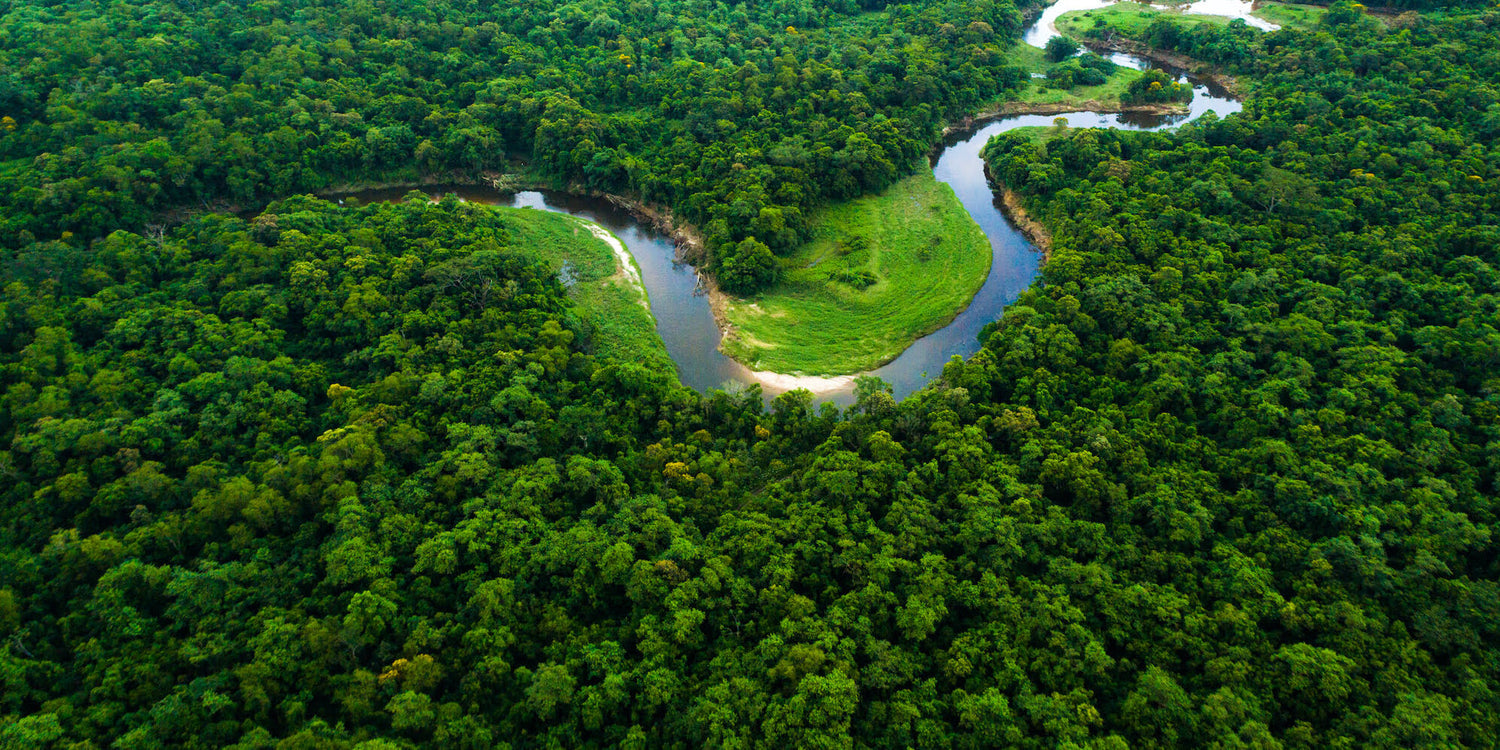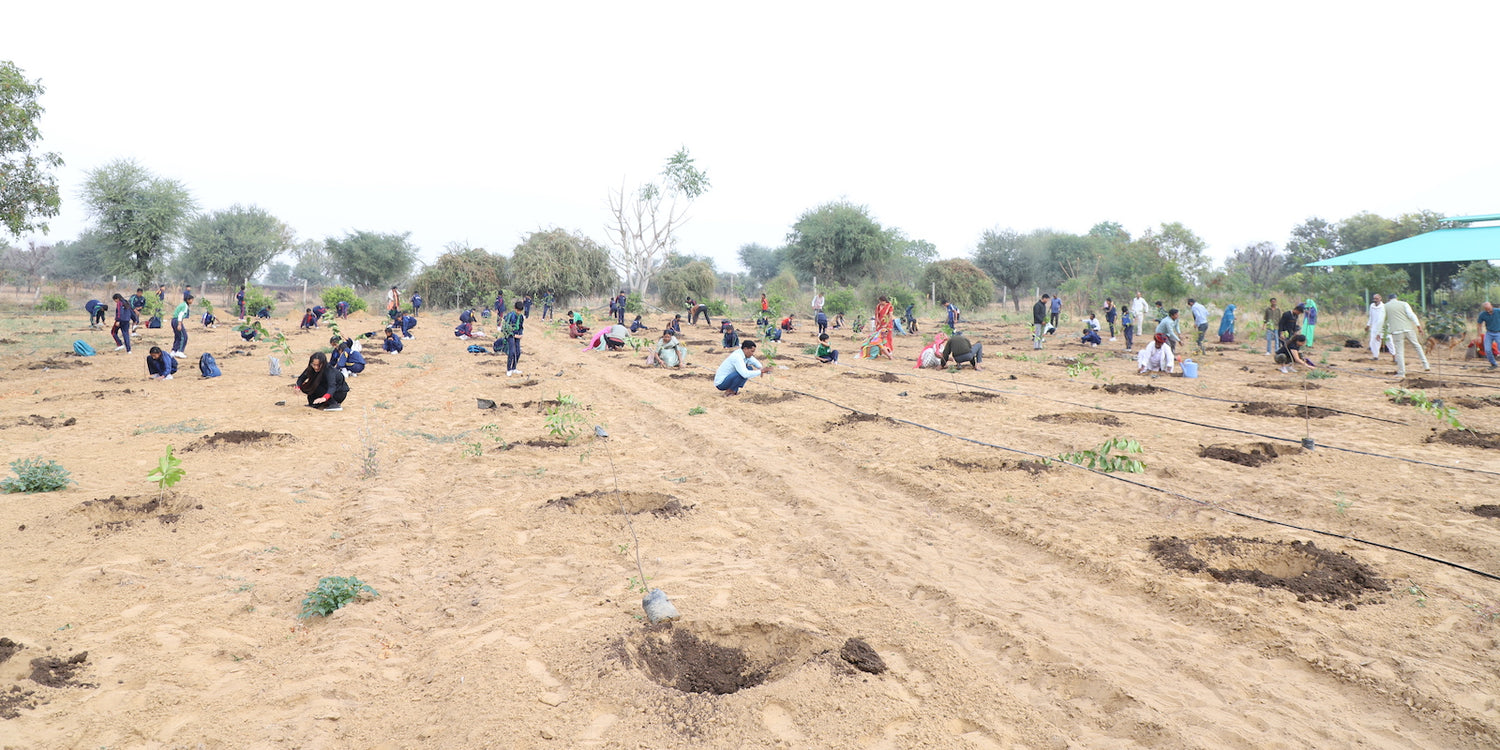
Tree Plantation in West Bengal State
Tree plantation in West Bengal is crucial for addressing environmental challenges and promoting sustainable development in the state. With its diverse Read more

Connect with us
-
👥 Corporates
If you are looking for:
- 🌲 Tree Plantation Events
- 📊 CSR Projects
📧 corporate@growbilliontrees.com
📞 +91 9699723523
💬 +91 9325931304 WhatsApp (Only)
🕒 Mon - Sat | 10am - 7pm IST
-
🧩 Tree Plantation NGOs
If you are looking for:
- 💰 Financial Assistance
- 🤝 Operational Support
📧 support@growbilliontrees.com
📞 +91 9699723523
💬 +91 9325931304 WhatsApp (Only)
🕒 Mon - Sat | 10am - 7pm IST
-
🌼 Individuals
If you are looking for:
- 👥 Group Tree Plantation Drive
- 🌳 Bulk Tree Plantation
📞 +91 9699723523
💬 +91 9325931304 WhatsApp (Only)
🕒 Mon - Sat | 10am - 7pm IST
Plantation Gallery
Trending
-
Trees for Birthday Celebration
4.56 / 5.0
(416) 416 total reviews
Regular price ₹ 299Regular priceUnit price / per -
Trees for Mother
4.6 / 5.0
(204) 204 total reviews
Regular price ₹ 299Regular priceUnit price / per -
Trees as a Gift
4.55 / 5.0
(315) 315 total reviews
Regular price ₹ 299Regular priceUnit price / per -
Trees to Honor the Memory of your Loved Ones
4.51 / 5.0
(262) 262 total reviews
Regular price ₹ 299Regular priceUnit price / per -
Trees for Women's Day (8th Mar)
4.56 / 5.0
(160) 160 total reviews
Regular price ₹ 299Regular priceUnit price / per
Trees for Corporates
-
 Project Closed
Project ClosedTrees by LIFT Team for Green Diwali
4.47 / 5.0
(64) 64 total reviews
Regular price ₹ 299Regular priceUnit price / per -
Trees for a Greener Tomorrow - by Mahindra Lifespaces
5.0 / 5.0
(2) 2 total reviews
Regular price ₹ 299Regular priceUnit price / per -
Trees for Environment
4.52 / 5.0
(86) 86 total reviews
Regular price ₹ 299Regular priceUnit price / per -
Trees for Farmers
4.58 / 5.0
(57) 57 total reviews
Regular price ₹ 299Regular priceUnit price / per -
Trees for Environment Day (5th Jun)
4.67 / 5.0
(12) 12 total reviews
Regular price ₹ 299Regular priceUnit price / per
Tree Plantation in West Bengal State
Tree plantation in West Bengal is crucial for addressing environmental challenges and promoting sustainable development in the state. With its diverse landscapes and cultural richness, West Bengal faces environmental threats due to urbanization, industrialization, and agricultural activities.
Implementing tree plantation drives becomes essential to preserve the natural beauty of the region and counteract these challenges.
Importance of Tree Plantation in West Bengal:
-
Environmental Conservation: Tree plantation is essential for conserving the environment and maintaining ecological balance. West Bengal can combat deforestation, restore degraded lands, and promote biodiversity conservation to safeguard its natural resources and enhance overall environmental health.
-
Air Pollution Control: Urban centers in West Bengal, like Kolkata and Howrah, often experience high levels of air pollution. Planting trees can help reduce air pollution by absorbing harmful gases and releasing oxygen, improving air quality and residents' respiratory health.
-
Climate Change Mitigation: Trees act as carbon sinks, absorbing carbon dioxide and mitigating the impacts of climate change. West Bengal can actively contribute to global efforts by planting more trees, reducing greenhouse gas emissions, and combating climate change.
-
Soil Erosion Prevention: With diverse geography, West Bengal faces soil erosion in many regions. Planting trees on slopes and barren lands can stabilize the soil, prevent erosion, and protect fertile land for agricultural purposes.
-
Water Conservation: Trees are vital in maintaining water resources by enhancing groundwater recharge and reducing surface runoff. Strategic tree plantations near water bodies and in arid regions can significantly contribute to water conservation efforts in the state.
Best Trees to Plant in West Bengal:
For successful tree plantation in West Bengal, it is essential to choose native tree species adapted to the state's climate and soil conditions. Some suggested native tree species for West Bengal include:
-
Mango (Mangifera indica): Mango trees thrive in West Bengal's warm and humid climate. They are not only prized for their delicious fruits but also provide shade and contribute to the local economy.
-
Neem (Azadirachta indica): Neem trees are well-suited to West Bengal's climate, with their drought tolerance and pest-repellent properties. They offer medicinal benefits and help prevent soil erosion.
-
Banyan (Ficus benghalensis): Banyan trees are culturally significant and thrive in West Bengal's tropical climate. They provide ample shade and support a variety of wildlife.
-
Peepal (Ficus religiosa): Peepal trees hold religious significance and are known for their ability to thrive in diverse soil conditions. They contribute to biodiversity and air purification.
-
Jackfruit (Artocarpus heterophyllus): Jackfruit trees are well-adapted to West Bengal's climate and produce large, nutritious fruits. They are also valued for their timber and shade-providing qualities.
-
Mahogany (Swietenia mahagoni): Mahogany trees are valued for their high-quality timber and adaptability to tropical climates. They contribute to reforestation efforts and support the local economy.
-
Teak (Tectona grandis): Teak trees are renowned for their durable timber and are suitable for planting in West Bengal's climate. They provide valuable shade and contribute to carbon sequestration.
-
Jamun (Syzygium cumini): Jamun trees produce edible fruits and thrive in West Bengal's subtropical climate. They are drought-tolerant and support local ecosystems.
-
Sheesham (Dalbergia sissoo): Sheesham trees are fast-growing and provide high-quality timber. They are well-suited to West Bengal's soil conditions and contribute to sustainable forestry practices.
-
Coconut (Cocos nucifera): Coconut palms are well-adapted to coastal regions of West Bengal and provide a range of valuable products, including coconuts, palm leaves, and timber.
- Mangroves : Planting mangrove species in West Bengal can help restore degraded coastal areas, mitigate the impacts of climate change, and protect vulnerable coastal communities from natural disasters such as storm surges and tsunamis. Additionally, mangroves serve as vital nurseries for commercially important fish species, contributing to the livelihoods of local communities dependent on coastal resources.
Best Time for Tree Plantation in West Bengal:
The monsoon season, from June to September, is the best time for tree plantation in West Bengal. The sufficient rainfall during this period provides ideal conditions for saplings to establish their roots and ensure their growth. However, tree plantation efforts can be carried out throughout the year with proper care and maintenance.
Government Initiatives:
The Government of West Bengal actively promotes tree plantation and environmental conservation through various initiatives and campaigns. To stay informed about these initiatives and contribute to tree-planting drives, individuals can refer to official government websites or contact relevant authorities.
Together, let's work towards a greener and sustainable West Bengal for present and future generations.
You may like
-

Gift a Tree
"Gift a Tree" is a concept where you can purchase and dedicate...
-

Trees For Shiv Ji
Trees For Shiv Ji is a meaningful initiative aimed at honoring Lord...
-

Tree plantation for Shri Ram
Embark on a sacred journey of environmental devotion with Tree Plantation for...
-

Tree Plantation on Navratri
Planting trees during Navratri is a meaningful way to honor the divine feminine...
-

Tree Plantation by Cause
Tree plantation for a cause is a movement that aims to address...
Corporate Plantations
-

Trees for Corporates
Trees for Corporates embodies a strategic commitment by businesses to environmental sustainability...
-

Tree Plantation for CSR
Tree plantation for Corporate Social Responsibility (CSR) involves companies and organizations actively...
-

Tree Plantation for SDG
Tree plantation stands as a multifaceted solution to a myriad of global...
-

Tree Plantation for ESG
Tree plantation emerges as a powerful tool to address ESG goals effectively....
-

Tree Plantation by Location
Tree Plantation by Location is a dynamic initiative aimed at tailoring tree...
Most Popular
-
Trees for Birthday Celebration
4.56 / 5.0
(416) 416 total reviews
Regular price ₹ 299Regular priceUnit price / per -
Trees for Mother
4.6 / 5.0
(204) 204 total reviews
Regular price ₹ 299Regular priceUnit price / per -
Trees as a Gift
4.55 / 5.0
(315) 315 total reviews
Regular price ₹ 299Regular priceUnit price / per -
Trees to Honor the Memory of your Loved Ones
4.51 / 5.0
(262) 262 total reviews
Regular price ₹ 299Regular priceUnit price / per -
Trees for Krishna on Janmashtami
4.52 / 5.0
(121) 121 total reviews
Regular price ₹ 299Regular priceUnit price / per
Similar Queries
Plantation in Agra , Plantation in Ahmedabad , Plantation in Akola , Plantation in Aligarh , Plantation in Allahabad , Plantation in Ambala , Plantation in Amravati , Plantation in Amritsar , Plantation in Aurangabad , Plantation in Ayodhya , Plantation in Banaras , Plantation in Bangalore , Plantation in Bareilly , Plantation in Begusarai , Plantation in Bhatpara , Plantation in Bhavnagar , Plantation in Bhilai , Plantation in Bhiwandi , Plantation in Bhiwani , Plantation in Bhopal , Plantation in Bhubaneswar , Plantation in Bidar , Plantation in Chandigarh , Plantation in Chennai , Plantation in Coimbatore , Plantation in Dehradun , Plantation in Delhi NCR , Plantation in Dhanbad , Plantation in Faridabad , Plantation in Gaya , Plantation in Ghaziabad , Plantation in Gorakhpur , Plantation in Gulbarga , Plantation in Guntur , Plantation in Gurgaon , Plantation in Guwahati , Plantation in Gwalior , Plantation in Hindupur , Plantation in Hosur , Plantation in Howrah , Plantation in Hubli-Dharwad , Plantation in Hyderabad , Plantation in India , Plantation in Indore , Plantation in Jabalpur , Plantation in Jaipur , Plantation in Jalandhar , Plantation in Jammu , Plantation in Jhansi , Plantation in Jodhpur , Plantation in Kalyan-Dombivli , Plantation in Kanpur , Plantation in Karimnagar , Plantation in Khammam , Plantation in Kochi , Plantation in Kolkata , Plantation in Kota , Plantation in Kozhikode , Plantation in Loni , Plantation in Lucknow , Plantation in Ludhiana , Plantation in Madurai , Plantation in Mangalore , Plantation in Mathura , Plantation in Meerut , Plantation in Moradabad , Plantation in Mumbai , Plantation in Mysore , Plantation in Mysuru , Plantation in Nagpur , Plantation in Nanded , Plantation in Nashik , Plantation in Navi Mumbai , Plantation in Nizamabad , Plantation in Noida , Plantation in Panipat , Plantation in Patna , Plantation in Pimpri-Chinchwad , Plantation in Pune , Plantation in Raipur , Plantation in Rajkot , Plantation in Ranchi , Plantation in Rourkela , Plantation in Saharanpur , Plantation in Salem , Plantation in Sangli , Plantation in Shillong , Plantation in Shimoga , Plantation in Shivamogga , Plantation in Sikar , Plantation in Siliguri , Plantation in Solapur , Plantation in Sonipat , Plantation in Srinagar , Plantation in Surat , Plantation in Thane , Plantation in Thiruvananthapuram , Plantation in Tiruchirappalli , Plantation in Tirunelveli , Plantation in Tirupati , Plantation in Udaipur , Plantation in Ulhasnagar , Plantation in Vadodara , Plantation in Varanasi , Plantation in Vasai-Virar , Plantation in Vijayawada , Plantation in Visakhapatnam , Plantation in Warangal , Plantation in Andhra Pradesh State , Plantation in Arunachal Pradesh , Plantation in Assam State , Plantation in Bihar State , Plantation in Chhattisgarh State , Plantation in Goa State , Plantation in Gujarat State , Plantation in Haryana State , Plantation in Himachal Pradesh , Plantation in Jharkhand State , Plantation in Karnataka State , Plantation in Kerala State , Plantation in Madhya Pradesh State , Plantation in Maharashtra State , Plantation in Manipur , Plantation in Meghalaya , Plantation in Mizoram , Plantation in Nagaland , Plantation in Odisha State , Plantation in Punjab State , Plantation in Rajasthan State , Plantation in Sikkim , Plantation in Tamilnadu State , Plantation in Telangana State , Plantation in Tripura , Plantation in Uttar Pradesh State , Plantation in Uttarakhand State , Plantation in West Bengal State





















